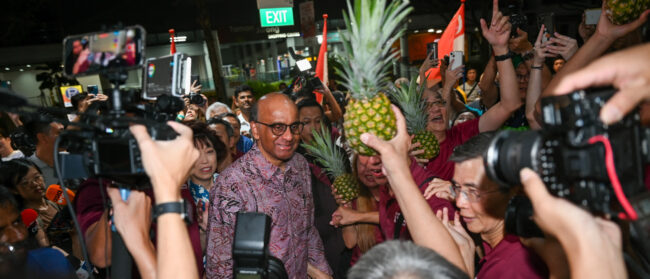Opinion by Andrew MacGregor Marshall
As Thailand celebrated the Songkran new year festival last month with raucous water fights and trips to temples, Bangkok residents discovered that an important piece of their history had mysteriously gone missing.
For decades, a small bronze plaque set into the paving stones of Royal Plaza has marked the spot where, on 24 June 1932, a group of Thai officials and military officers announced that they had seized power to overthrow the absolute monarchy.
It was the birth of democracy in Thailand. The king learned of the revolution while golfing at his seaside holiday palace in Hua Hin, and returned to Bangkok to formally accept the demands of the rebels and agree to be bound by a constitution – Thailand’s first. The Kingdom was evolving like most countries do as they develop and become more open to the world. Absolute monarchies tend to get swept away, replaced by regimes with some degree of democracy.
But in Thailand the royalists have never accepted the end of the absolute monarchy, and the royals have never accepted they should just become figureheads. The struggle did not end in 1932. It still hasn’t ended today.
On 4 April, tents were erected over the bronze plaque in Bangkok. Some time shortly afterwards, probably on 5 April, the symbolic marker was removed and replaced with another bearing royalist slogans. It is inconceivable that the old plaque could have been stolen without the knowledge of the authorities. Royal Plaza is surrounded by numerous military, police and palace buildings and is constantly monitored.
The timing was significant. The day after the plaque was replaced, on 6 April, King Vajiralongkorn formally signed a new constitution drafted by the junta, in an elaborate palace ceremony heavy with symbolism. Vajiralongkorn, flanked by the army and police chiefs, handed Thailand’s prostrating prime minister a copy of the constitution that had been written on parchment by the royal scribes. The message was that the constitution was a personal gift from the king.
The new charter is a blueprint for dictatorship dressed up as democracy. The junta is trying to achieve an outcome similar to Singapore, where regular elections are held but the ruling oligarchy remains in control regardless. Infuriated by the tendency of voters to support the political proxies of exiled tycoon Thaksin Shinawatra whenever they get a chance, the junta and its royalist elite backers have emasculated parliament and ensured it will be dominated by an unelected senate packed with generals and royalists.
One of the most respected Thai political analysts, Thitinan Pongsudhirak, a professor at Chulalongkorn University, is a member of the Thai elite, and tends to adopt conservative – and careful – positions. But he is scathing about the new constitution, calling it “a throwback to Thailand’s undemocratic past based on an engineered legislature that gives the 250-member military-appointed Senate latitude to hold the elected Lower House in check”.
To give the constitution a superficial veneer of democratic legitimacy, a referendum was held in August last year. Campaigning for a “No” vote was banned, and Thais were bombarded with relentless propaganda. Despite this, only 61% voted “Yes” on a low turnout.
The whole process descended into farce this year when it emerged that Vajiralongkorn was refusing to endorse the charter despite the fact that Thai voters had already approved it. He demanded two key changes: removing an attempt to dilute the power of the king in a constitutional crisis; and also the need to appoint a regent to reign on his behalf when overseas, despite Vajiralongkorn spending much of his time in Munich.
The message to Thais from all of this is clear. Prime Minister Prayuth Chan-ocha and his allies use the theatrics of referendums and elections when it suits them, but they are profoundly opposed to true democracy and the freedoms that go with it. Tearing out the 1932 commemoration plaque spoke much louder than words.
Words are considered dangerous in 21st-century Thailand. On the same day that it became widely known that the plaque had been removed, the Thai junta issued an extraordinary statement ordering all Thais to cease following three prominent junta critics on social media – exiled academics Somsak Jeamteerasakul and Pavin Chachavalpongpun, and me.
It was an order with no clear legal basis, and it had the predictable effect of encouraging many more Thais to follow us. But it was part of a pattern. With the removal of the commemoration plaque, the repressive new constitution and the clumsy attempts to silence critics, the junta is trying to drag Thailand backwards to an authoritarian era in which the people are expected to be obedient subjects rather than empowered citizens.
It won’t work. It takes more than ripping out an old plaque to make Thais stop caring about democracy. The tragedy of modern Thailand is that the junta appears not to understand this, and instead of peaceful evolution, the Kingdom faces the growing likelihood of eventual violent struggle. As Thitinan warns, the future portends “turmoil and conflict”. This is what happens when the lessons of history are ignored.


